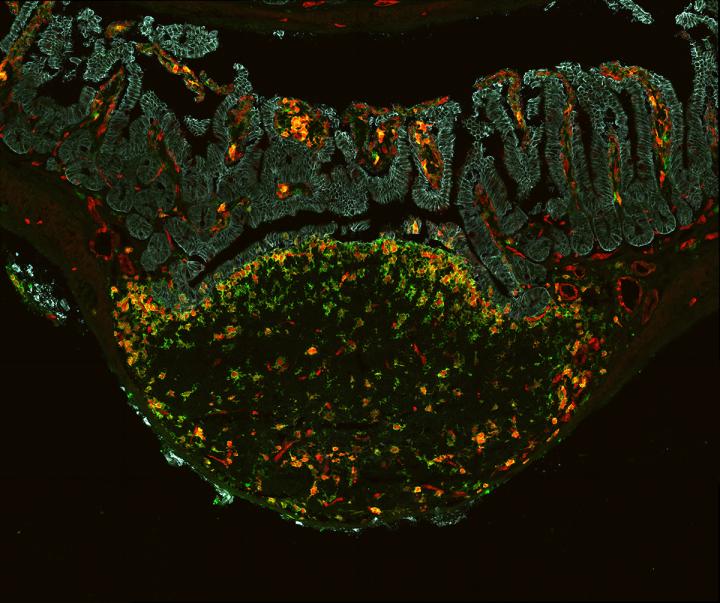Using a new single-cell technique, WEHI researchers have uncovered a way to understand the programming behind how stem cells make particular cell types.

Credit: Wang Cao and Shengbo Zhang, WEHI
Using a new single-cell technique, WEHI researchers have uncovered a way to understand the programming behind how stem cells make particular cell types.
The research uncovered 30 new genes that program stem cells to make the dendritic cells that kick-start the immune response.
By uncovering this process, the researchers hope they will be able to find new immunotherapy treatments for cancer, and plan to expand this technique in other areas such as discovering new drug targets in tumour initiation.
At a glance
- WEHI researchers have developed a new single cell method to understand the programming behind what causes stem cells to make particular cell types.
- By testing daughters of a single stem cell in different parallel tests, researchers found 500 genes that predicted dendritic cell fate.
- Using a CRISPR screen, they discovered 30 key genes amongst the 500 that program dendritic cell production.
- Researchers intend to expand use of this technique to find the ‘big bang’ moment in cancer development to identify new drug targets to fight cancer.
Studying ‘sister’ cells
Led by Dr Shalin Naik, Dr Luyi Tian, Ms Sara Tomei and Mr Jaring Schreuder and published in Immunity, the research outlined the processes involved in kick-starting the generation of dendritic cells driven by the hormone Flt3 ligand, which is used in immunotherapy.
The research team developed a new technique to link the gene expression of a single cell with what cell types it made.
“We invented a technique called ‘SIS-seq’ in order to study ‘sister’ cells that descended in parallel from the ‘mother’ stem cell,” Dr Naik said.
“As RNA sequencing destroys the single stem cell, you are only able to measure the genetic contents of the cell but lose the chance to know what it would have made. So, there is no way of then going back in time to find that out.”
“By letting a single stem cell divide only a few times, not all the way, we were able to test the sisters separately. Some were tested for what they made, and others were tested for their genetic contents.”
“In this way, we have been able to link the genes with the cell types that are made.”
Discovery of 30 new genes
Dr Naik said the findings would not have been possible without advances in technology that enabled the team to answer multiple questions simultaneously.
“Using a CRISPR screen, we tested 500 genes that predicted dendritic cell fate and discovered 30 new genes that actually program dendritic cells to be made,” he said.
Dr Naik said the breakthrough could pave the way for new drug targets to fight cancer and improve immunotherapy treatment.
“We’ve now got a list of genes to try and generate or boost human dendritic cells in a petri dish for immunotherapy,” he said.
“And we are going to expand the use of this technology to find the genes that program the generation of each of the different human immune cell types.”
Finding the ‘big bang’ of cancer initiation
By examining cells at the single-cell level using this technique, researchers also intend to find the ‘big bang’ moment in cancer development in order to create new drug targets to fight cancer and improve immunotherapy.
“Using our time machine technique, we hope to be able to pinpoint which of the normal programs in tissue generation are hijacked by cancer causing genes in single cells and then use this information to find new targets for therapy,” Dr Naik said.
This work was made possible with funding from the National Health and Medical Research Council, the Australia Research Council, the Victorian Cancer Agency and the Victorian Government.
###
Media Contact
Samantha Robin
[email protected]
Related Journal Article
http://dx.




